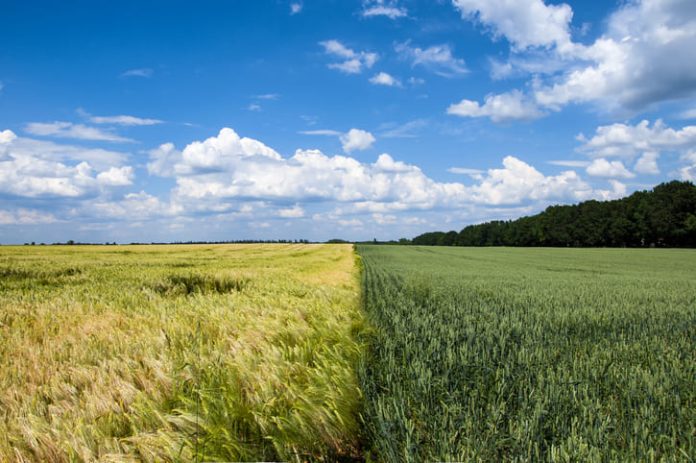The voluntary carbon market has been teetering on a knife’s edge. Once seen as a crucial tool in global decarbonization efforts, it has been plagued by scandals over the legitimacy of carbon offsets and corporate greenwashing, leaving buyers hesitant and market trust in short supply. But Agreena, the Danish climate solutions pioneer, is restoring the balance with a landmark achievement.
At the center of the shift stands the AgreenaCarbon Project, which has become the first large-scale agricultural cropland initiative to be registered under Verra’s Verified Carbon Standard (VCS) VM0042 methodology, a rigorous scientific framework for measuring and verifying soil carbon sequestration. This milestone registration marks a crucial step toward making soil carbon credits a reliable asset class in the voluntary carbon market.
A Credibility Crisis, and an Opportunity
While the voluntary carbon market has been growing for years, controversies have hampered its progress. Reports have surfaced showing that some forest preservation projects, the most prevalent form of nature-based offsets, have failed to deliver the climate benefits they promised. This has led to a decline in market value and left companies hesitant to invest in carbon credits for fear of reputational damage.
Enter soil carbon sequestration, long considered a powerful but underutilized solution. Unlike tree-based projects, which can take decades to capture carbon, regenerative agriculture techniques, including reduced tillage and cover cropping, can sequester carbon quickly while improving soil health and biodiversity. The only challenges have been proving its scalability and measurement reliability.
But AgreenaCarbon’s Verra registration proves that agricultural soil carbon projects can both meet the highest standards and deliver at scale. These validated claims provide much-needed reassurance to corporations that they are investing in legitimate, scientifically-backed carbon removals and reductions.
“This milestone is a true game-changer not just for Agreena, but for the global voluntary carbon market and companies looking to achieve real sustainable impact,” said Frederik Aagaard, Agreena’s Chief Commercial Officer. “With Verra registration, we can drive climate impact with integrity and market-leading quality.”
What This Means for Carbon Buyers
For companies facing mounting regulatory and investor pressure to meet net-zero commitments, high-integrity carbon credits are essential. The European Union’s Corporate Sustainability Reporting Directive (CSRD) and evolving global disclosure rules require businesses to be more transparent about their emissions reductions. Simply put, companies can no longer afford to buy low-quality offsets and hope no one notices.
Agreena’s Verra-certified credits offer a compelling alternative: a nature-based solution that is not only verifiable but also delivers co-benefits beyond carbon, including improved soil health, increased biodiversity, and greater resilience against climate change. On top of all this, carbon finance is steered towards the people at the forefront of the regenerative revolution – farmers.
“The validation process ensures that buyers are investing in real, measurable climate impact,” said Aagaard. “It’s about shifting the market toward higher integrity, where verified carbon credits serve as legitimate tools for climate action, and murky associations with corporate greenwashing are left behind.”
A New Model for Agricultural Carbon Finance
Beyond its impact on corporate carbon strategies, Agreena’s registration sets a precedent for how agricultural projects can tap into carbon finance. Historically, one of the biggest barriers to scaling regenerative farming has been the upfront cost, making many farmers hesitant, or simply unable, to make the shift.
By providing a verified pathway to generate revenue through carbon credits, Agreena is changing the financial equation. Instead of regenerative farming being seen as a risk, it’s now a business opportunity that aligns climate goals with economic incentives.
With 4.5 million hectares of farmland already enrolled in its program, Agreena is creating a model that could accelerate soil carbon adoption across Europe. Its Verra registration is evidence that with the right methodologies, farm-based sequestration can be a core pillar of global decarbonization efforts.
A Market at a Crossroads
Agreena’s Verra registration arrives at a pivotal time for the voluntary carbon market. While recent scandals have shaken investor confidence, demand for high-quality offsets remains strong, especially from industries where direct emissions reductions are difficult.
As Agreena prepares to issue its first Verra-certified carbon credits in 2025, this could be the catalyst needed to shift the market away from low-quality offsets and toward verified, high-impact solutions. With integrity, reliability and scale in its arsenal, soil carbon sequestration may finally gain the legitimacy needed to become the cornerstone of the voluntary carbon market.
Disclaimer: This article contains sponsored marketing content. It is intended for promotional purposes and should not be considered as an endorsement or recommendation by our website. Readers are encouraged to conduct their own research and exercise their own judgment before making any decisions based on the information provided in this article.





































